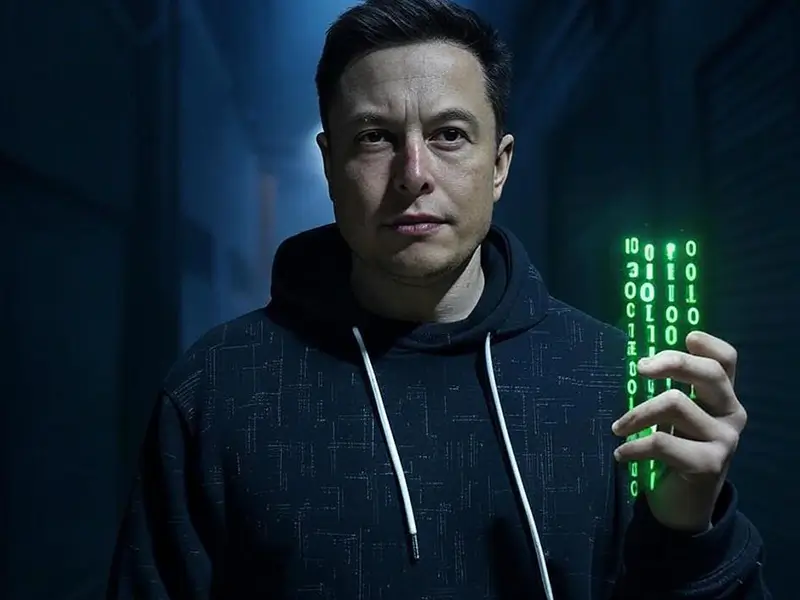5 Sharp Lessons We Can All Learn from Elon Musk
Love him or hate him, but ignore him? Not a chance.
Elon Musk is one of those rare characters who triggers both applause and eye-rolls. But let’s be honest. The man didn’t just teleport into Silicon Valley and hit a “success” button. He grew up in apartheid-era South Africa, detoured through Canada, and clawed his way into the US tech scene. From there, he launched himself to the edge of Mars — and kept going.
You don’t need to become a Musk fanboy. But if you’ve got ambition, curiosity, or the urge to build something real, it’s worth examining what drives him. There’s gold buried in the chaos.
Here are five of the sharpest takeaways from Elon Musk’s story. No fluff, no hero worship. Just hard-earned lessons that actually matter.
Learn Programming — It’s a Gateway Drug to Power
Before Elon was launching rockets or building electric cars, he was just a curious kid with a Commodore VIC-20. That thing came with a 60-hour BASIC tutorial. He knocked it out in three days. Barely slept. Just pure obsession.
By 13, he’d written and sold his first video game for 500 bucks. Not bad for the 80s. But more than the money, it was proof. Code could create value from nothing.
Years later, when he co-founded Zip2, he didn’t just hire coders. He was one. He wrote much of the early product himself. That technical fluency became his secret weapon — and the launchpad for everything that followed: X.com, PayPal, SpaceX, Tesla.
Takeaway:
If Elon never learned to code, there’s no Zip2. Without Zip2, there’s no PayPal. Without PayPal, there’s no capital for rockets or electric cars. You don’t need to become a full-time programmer, but if you want leverage in the 21st century, code is the language of power. Understanding how the digital world works isn’t optional anymore — it’s survival.
Move When the Window Opens
Musk got into Stanford for a PhD in physics. That’s no joke. But he left after just two days.
Why? Because in 1995, the internet was exploding. The opportunity was now. He told his professor, “I’m putting this on pause to start a company.”
That company became Zip2. It was acquired for over $300 million, giving him his first real stake. That money fueled the rest of his empire.
Takeaway:
Smart decisions don’t always live in textbooks. Sometimes they live in timing. Musk didn’t wait around for the internet wave to pass him by. He jumped early, rode the chaos, and made it count. Momentum rarely waits for you to feel ready. When it shows up — move.
Break the Problem, Not Yourself
People told him reusable rockets were a fantasy. They laughed at electric cars. Both SpaceX and Tesla nearly collapsed. And yet, here we are.
The real pattern behind Musk’s success isn’t just risk-taking. It’s problem-breaking. He treats challenges like puzzles. If something’s too slow, too expensive, or just “how it’s always been done,” he pulls it apart.
At Tesla, when the production line slowed down, he fired the robots. At SpaceX, when engineers said “this is how NASA does it,” he asked “why?”
Takeaway:
Most people see walls and walk away. Elon sees a wall and wonders if it’s just a badly designed door. The magic isn’t in some superhuman talent. It’s in refusing to accept the first answer. If it’s broken, break it better.
Pressure Comes with the Price Tag
There was a point when Musk was almost flat-out broke. Tesla and SpaceX were both circling the drain. He was sleeping on the factory floor. Borrowing money. Losing weight. Breaking down.
But he didn’t quit.
He didn’t blindly charge forward either. He stepped back, checked the mission, and recalculated. If the vision still made sense, he kept going. And that’s exactly what he did.
Takeaway:
Everyone wants the outcome. Few can handle the pressure that comes with it. Musk didn’t just endure stress. He made peace with it. That doesn’t mean grind until you drop. It means knowing when to push, when to pause, and how to stay calm when everything’s on fire. Pressure isn’t a glitch — it’s part of the design.
Don’t Just Follow the Rules. Question Them.
NASA had decades of procedures. SpaceX questioned nearly all of them.
Why does this rocket part cost a million dollars? Can we build it for five thousand?
Why does this take three years? Can we do it in six months?
Tesla asked the same kinds of questions in the auto world. From car software to battery tech to how you buy a vehicle, everything was reimagined. That’s the trick. Most rules aren’t actually rules — they’re just habits.
Takeaway:
You don’t have to be a rebel. But you do need to stay curious. Ask why something works the way it does. Ask what would happen if it were better. That’s not rebellion. That’s evolution. And it’s how real breakthroughs start.
Final Thought — You Don’t Have to Be Elon. But You Can Think Sharper.
You don’t need to build rockets. You don’t need to sleep on cold factory floors. You don’t need to eat lawsuits for breakfast.
But the thinking? That’s fair game.
Learn something useful. Especially code.
Act when the timing’s hot.
Solve real problems.
Tolerate the weight.
And question everything — even this article.
Apply one of these consistently and you’ll move faster than most. Apply all five? You might surprise yourself.
Like this story?
Bookmark Wiz Fact for more sharp, no-fluff insights. Got thoughts or disagreements? Drop them in the comments. We don’t just write articles. We start fires.








